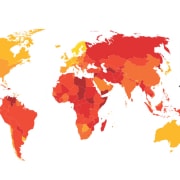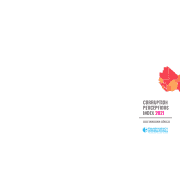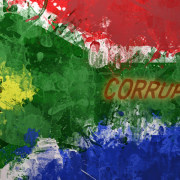|
Getting your Trinity Audio player ready...
|
Every year around this time, Transparency International (TI) releases its Corruption Perceptions Index – and every year we report on South Africa’s consistently lacklustre showing.
In the previous CPI the country scored 44. In 2018 and 2017 it scored 43. Before that, South Africa managed 45 (2016), 44 (2015). 44 (2014), 42 (2013), and 43 (2013). The score sits on a scale from 0 to 100, where 100 is clean and 0 is corrupt.
It is not hard to see the pattern of stagnation.
According to TI, a score below 50 indicates a significant corruption problem. South African residents know this applies to us, but what we don’t know is when the numerous anti-corruption plans, measures, committees, forums, and strategies which our government continues to throw at us, will start to bear fruit.
South Africa is not alone in this predicament – the 2020 CPI reveals that most countries have made little to no progress in tackling corruption in almost a decade and more than two-thirds of countries, out of 180 assessed. scored below 50 out of 100. In fact, since 2012 only 26 countries have improved, while 22 have declined. The rest have made little or no progress, despite some positive developments.
The score is important because it is the real indicator of perceptions about corruption in the country. The rank is merely an indication of where a country stands in relation to others and it changes as the number of countries surveyed changes or as other countries improve or decline.
The global Covid-19 pandemic worsened an already precarious situation for South Africa and other countries, and TI’s research shows that countries where corruption is more pervasive are least equipped to handle such crises. We saw this earlier in 2019 with the shameful incidents of looting during the initial round of emergency procurement.
The perpetrators of this corruption were brazen in their hijacking of the emergency measures put into place to deal with Covid-19 in South Africa. Such measures included, among others, a R500-billion relief package to provide for food parcels for the needy, a temporary social grant increase for over 16 million beneficiaries and the Temporary Employer/Employee Relief Scheme for those whose salaries were affected. To implement these and other measures, the government put in place emergency procurement regulations.
All of these proved irresistible to those with thieving tendencies, and the impact was felt by our most vulnerable and needy. The situation was singled out in the CPI report – “In South Africa, an audit of Covid-19 expenditures revealed overpricing, fraud and corruption”.
This makes the pandemic not just a health and economic crisis, but a corruption crisis too, said TI chairperson Delia Ferreira Rubio, and one that the world is currently failing to manage.
Even countries with higher scores on the CPI, TI noted, have had their fair share of corruption challenges, including a lack of transparency in public spending in response to Covid-19.
In sub-Saharan Africa, the region that produced the lowest average score of all, at 32 (global average was 43), the top countries were Seychelles (66), Botswana (60), and Cabo Verde (58). At the bottom are Sudan (16) and Somalia and South Sudan (12 each). The latter two are also at the bottom of the global table.
Download the regional infographic.
Significant improvement was seen in Angola and Côte D’Ivoire, which have improved respectively by 8 and 9 percentage points since 2012/2013, as well as Senegal (9-point improvement) and Tanzania (7-point improvement). On the other hand, Congo (-7), Malawi (-7), Madagascar (-7) and Liberia (-10) have declined the most over the period.
Recommendations
To successfully reduce corruption and combat Covid-19, TI said, it is essential for countries to:
- Strengthen oversight institutions to ensure resources reach those most in need. Anti-corruption authorities and oversight institutions must have sufficient funds, resources, and independence to perform their duties.
- Ensure open and transparent contracting to combat wrongdoing, identify conflicts of interest and ensure fair pricing.
- Defend democracy and promote civic space to create enabling conditions for holding governments accountable.
- Publish relevant data and guarantee access to information to ensure the public receives easy, accessible, timely and meaningful information, including on public spending and resource distribution, which are particularly relevant in emergency situations.








